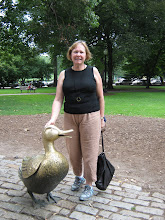



La Befana is part of traditional Italian Epiphany celebrations. I have borrowed this from Anthony Parente to explain what it means. "La Befana is one of Italy's oldest and most celebrated legends. Each year on January 6 the children of Italy awaken in hopes that La Befana has made a visit to their house. This is a significant day to Italians because it marks the end of the Christmas season and the day that the three Wise Men arrived at the manger of the Christ child. Over the years the Epiphany has been a more celebrated holiday for the children of Italy than even Christmas.
As legend has it the three Wise Men were in search of the Christ child when they decided to stop at a small house to ask for directions. Upon knocking, an old woman holding a broom opened the door slightly to see who was there. Standing at her doorstep were three colorfully dressed men who were in need of directions to find the Christ child. The old woman was unaware of who these three men were looking for and could not point them in the right direction. Prior to the three men leaving they kindly asked the old woman to join them on their journey. She declined because she had much housework to do. After they left she felt as though she had made a mistake and decided to go and catch up with the kind men. After many hours of searching she could not find them. Thinking of the opportunity she had missed the old woman stopped every child to give them a small treat in hope that one was the Christ child. Each year on the eve of the Epiphany she sets out looking for the baby Jesus. She stops at each child's house to leave those who were good treats in their stockings and those who were bad a lump of coal." This story is told beautifully by Tomie dePaola in The Legend of Old Befana. We can always rely on Tomie to have a picture book about any Italian tradition!
Interestingly, the Russians also have a folktale about an old woman who is also visited by three wise men who are on their way to visit a new baby. She is known as Baboushka. If you cannot find the dePaola book, look for one of the Russian folktales. My library has these three, but there are others:
• Babushka by Sandra Ann Horn & Sophie Fatus
• Baboushka by Arthur Scholey & Helen Cann
• The Tale of Baboushka by Elena Pasquali & Lucia Mongioj

No comments:
Post a Comment